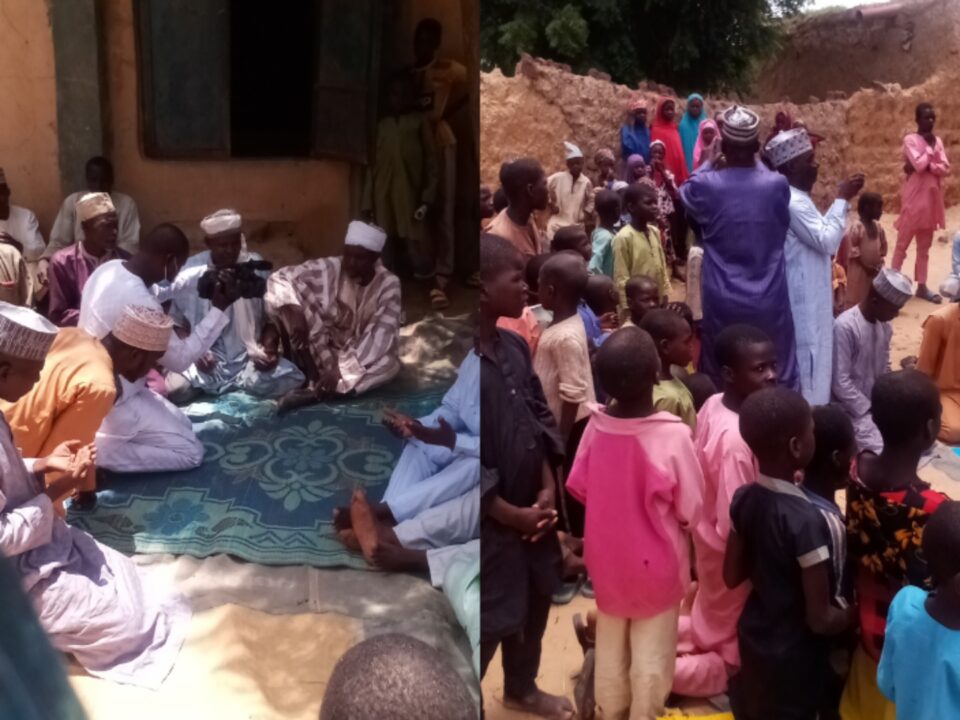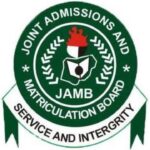Many children in Danbasu village of Sokoto State are defying absence of primary school to acquire education, thanks to mainstreaming of formal education subjects into Integrated Quranic School (IQS), FELIX KHANOBA writes.
In the small village of Danbasu, Wurno local government of Sokoto State, North-West Nigeria , a unique style of education is fast taking children of school-age out from the streets.
The scheme, which infuses subjects such as Mathematics, English Language and basic science into the traditional IQS curriculum, meets the need of Muslim children to acquire Islamic religious knowledge while they also get formal education.
“They came for quranic education now they are getting more,” the octogenarian proprietor of Makarantar Allo Danbaso, popularly called Mallam, said during a United Nations Children’s Fund (UNICEF) facilitated visit to the agrarian community a few weeks ago.
The Integrated Quranic School- which targets children who are learners in traditional quranic centres, has remained the only source for formal education in the community, no thanks to the absence of any school in the area.
Supported by UNICEF through funds provided by Foreign, Commonwealth and Development Office (FCDO) of the United Kingdom, Makarantar Allo Danbaso has seen many learners graduating to top secondary schools in Sokoto State after only nine months stint in the IQS, generating substantial buzz among children who were hitherto averse to formal education.
Many pupils who graduated from IQS Danbasu are now excelling in schools like the popular Sheikh Abubakar Gumi College, Sokoto- named after a renowned Islamic scholar, Government Secondary School, Wurno, among others,
The IQS is being implemented by partners ( including state governments) under the Girls Education Project (GEP3) in six northern states of Bauchi, Kano, Katsina, Niger, Sokoto and Zamfara.
Seen as a potent weapon against the perennial problem of out-school-children , the IQS in Danbasu has also attracted attention of federal lawmaker who appeared impressed with the interest being shown by the community.
The lawmaker, Ibrahim Gobir, who represents Sokoto East senatorial district in Nigeria’s National Assembly, has attracted a school building to serve as a post literacy centre just a few metres away from Makarantar Allo Danbaso that is tucked in a mud house.
The new school structure put in place under the constituency project is to ensure that learners, particularly girls who graduated from Makarantar Allo Danbaso but have nowhere to further their education, will undergo post literacy studies under the Sokoto Agency for Mass Education instead of rushing into early marriage.
Lawan Wurno, Area Coordinator in charge of IQS in the local government and leader of the project, said the scheme has been gathering momentum in the Danbasu, adding that if the trend continues, children from the community would soon tower above many others in the area of education.
“They learn the Quran, and then Mathematics, Science and others in Hausa tongue (sic) and from here, the learners are mainstreamed or integrated into secondary school because the village does not have a formal primary school.
” The IQS, as a result of this integration, has sent many people to secondary school and one of them is now in university, and many of them are in school of health technology.
” From 2013 when the IQS started, we have been mainstreaming learners to GSS Wurno. Some are even transferred to Sheikh Abubakar Gumi College, Sokoto,” the area coordinator said.
He, however, expressed concern on the fate of girls who graduated from the IQS in Danbasu, saying the hope of many of them to further their education in conventional secondary school is often dashed as a result of absence of girls secondary school in neighbouring communities.
” The only problem we are facing is mainstreaming female learners because we don’t have a (secondary school) place to send them when they finish from basic here,” he said.
On the enrolment process into IQS, the area coordinator said children between ages eight and 12 are often enrolled in the school for a period of nine months before they are mainstreamed into secondary school, adding that facilitators attached to each IQS are responsible for the teaching of relevant subjects except quranic knowledge which is handled by proprietor of each centre.
“The Sokoto Agency for Mass Education conducts exams for the learners after about nine months and mainstream them into secondary school. We give them an adult education certificate,” he added.
While one of the learners, Ibrahim Mohammed, who spoke in Hausa language, expressed delight over the mode of education and promised to do exploit when opportuned to be in secondary school, the proprietor, of the IQS centre, said mainstreaming has been a game changer in meeting the education needs of children even as he lauded the impact of the GEP 3 project on the scheme.
The proprietor’s view appears corroborated by data presented at a UNICEF organised media dialogue on GEP3 which took place in Sokoto.
According to the data presented by Tukur Labbo-Yabo, Education Officer, UNICEF field office, Sokoto, 1, 280 teachers/IQS facilitators have undergone frequent, local in-service training and
mentoring to improve pedagogical knowledge and skills, with Sokoto accounting for 880 and Zamfara 400.
It is widely believed that with the many success stories of Makarantar Allo Danbaso and the eagerness of many children to leverage on the scheme to meet their educational needs, the battle against the menace of out-of-school children will deliver the desired result in the area.
.



